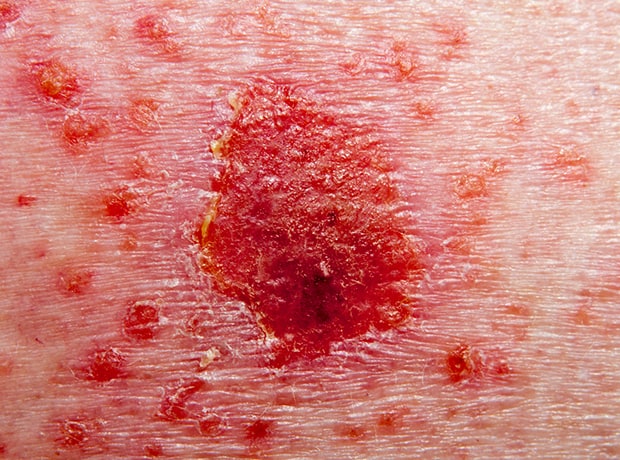Scientists at the University of Birmingham have announced the discovery of a protein that could hold the key to novel gene therapies for skin problems such as psoriasis.
The newly discovered protein has been dubbed rN-JARID2, as it is a fragment of a larger molecule, called JARID2, which was previously believed to only be present in the developing embryo where it coordinates the formation of tissues and organs.
The discovery was made when researchers led by Dr Aditi Kanhere from the School of Biosciences found a shortened form of JARID2 in adult skin cells, and they showed it is responsible for ensuring these skin cells ‘differentiate’, or become a more specialised cell type.
Dr Kanhere explained how the discovery would work: “In some diseases, cells lose their ability to differentiate, and reproduce more rapidly. Being able to redirect cells back to their usual life cycle could alleviate the processes behind the disease.”
Such is the case with psoriasis, which is caused by the overly-rapid reproduction of skin cells. The excess cells are then pushed to the surface of the skin too quickly, resulting in a build-up of cells that aren’t fully mature on the surface of the skin, causing flaky, crusty red patches covered with silvery scales.
Psoriasis is already fairly treatable, with some of the current biologic therapies meaning up to 90% of psoriasis patients can achieve significant improvement in their skin, whilst up to 50% of patients achieve complete clearance of their skin for five years or longer.








